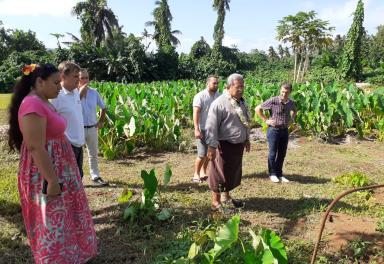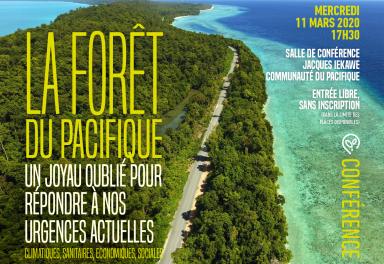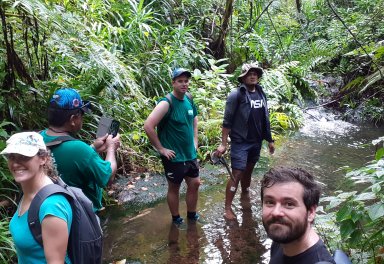Conference on fish farming: tomorrow in French Polynesia
In parallel to the regional technical workshop on the capitalization of PROTEGE aquaculture organized this week in French Polynesia, a conference is organized on Thursday March 9, 2023, in collaboration with the University of French Polynesia, in Tahiti.
Presentation of the conference
Take advantage of the visit of an international expert to Tahiti to dive into sustainable aquaculture! Guirec Dewavrin, an expert in fish farming from Switzerland, will make you navigate from human food issues to the environmental, economic and social sustainability of fish farming.
The topics covered are the importance of the development of aquaculture to ensure the needs of excellent proteins from aquatic animals and plants, the benefits of aquatic products, the impacts on the environment, the control of aquaculture productions and the values and future of aquaculture.
This conference is organized within the framework of the PROTEGE project (funded by the European Union) and in parallel with a regional technical workshop on tropical aquaculture.
Speaker's biography
You don't know what fish farming is? This concept was invented by our speaker, Guirec Dewavrin. With 42 years of experience in more than 19 countries and 67 companies, Guirec has developed this ethological and humble approach that puts man at the service of the species raised and not the other way around.
Guirec Dewavrin has worked in various research centers such as the Station Marine de Sète, Ifremer Palavas, ARDA in Reunion Island as well as in many private aquaculture companies in 19 countries (France, Spain, Belgium, Italy, Croatia, Switzerland, England, Turkey, Tunisia, Greece, Malta, Iran, Canada, New Caledonia, Reunion Island, Mozambique, St Pierre et Miquelon, South Africa, Portugal). He has specialized in marine and freshwater fish hatcheries with strict dietary requirements: use of microalgae and zooplankton adapted to the size of the larvae's mouth at the beginning of their trophic life.
Having lived the adventure of the first sea bass (Dicentrarcus labrax) and some sparidae such as the sea bream (Sparus aurata) rearing, he was able to apply an approach to develop production protocols for new species without any bibliographic hindsight or specific knowledge of the species to be raised. He has thus contributed to the success of multiple aquaculture enterprises.
Practical information
Conference open to all and free of charge at the University of French Polynesia







